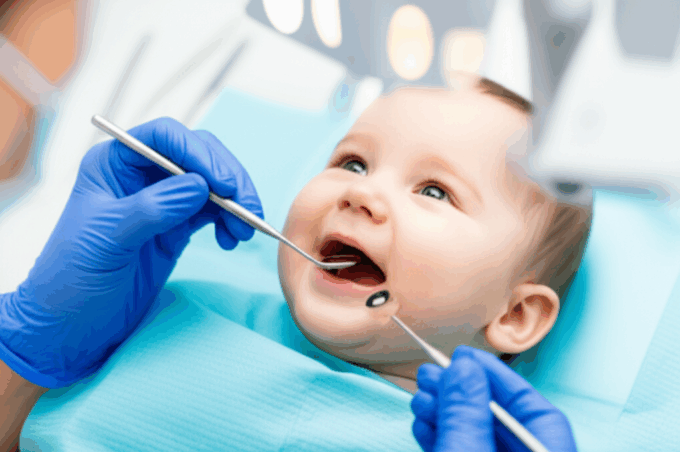Baby dental care is a critical, yet often overlooked, aspect of early childhood development. Establishing good oral hygiene habits from the very beginning lays the foundation for healthy teeth and gums throughout a child’s life. Far from being merely cosmetic, a child’s oral health has profound implications for their overall well-being, impacting everything from nutrition and speech development to self-esteem. Understanding the unique needs of infants and toddlers when it comes to dental care is paramount, enabling parents and caregivers to take proactive steps towards safeguarding their child’s smile.
The Importance of Baby Dental Care
The journey of a child’s oral health begins long before the first tooth surfaces. While seemingly insignificant to some, the gums of an infant require gentle cleaning. Once teeth start to emerge, typically between six and twelve months of age, dedicated dental care becomes essential. These primary, or “baby,” teeth play a vital role. They act as placeholders for permanent teeth, guiding their eruption into the correct positions. If baby teeth are lost prematurely due to decay, it can lead to crowding and misalignment of adult teeth, potentially necessitating costly orthodontic treatment later on.
Beyond structural importance, healthy teeth are indispensable for proper chewing and digestion. A child who experiences pain or discomfort due to dental issues may struggle to eat a varied and nutritious diet, impacting their growth and development. Furthermore, clear speech relies on the presence and proper positioning of teeth. Dental problems can affect enunciation, potentially leading to communication challenges and social difficulties.
When to Begin Your Baby’s Dental Journey
The conversation around baby dental care should commence even before the first tooth appears. As soon as your baby is born, you can start gentle gum cleaning. After feedings, use a clean, damp washcloth or a piece of gauze to gently wipe your baby’s gums. This removes milk residue and familiarizes your baby with having their mouth cleaned, making the transition to brushing easier.
The American Academy of Pediatric Dentistry (AAPD) and the American Dental Association (ADA) recommend a child’s first dental visit between the eruption of the first tooth and their first birthday. This initial visit is not just about checking for cavities. It’s an opportunity for the pediatric dentist to assess your baby’s oral development, discuss teething symptoms, provide guidance on diet and oral hygiene, and answer any parental concerns. Early encounters with a dental professional in a positive and reassuring environment can help prevent dental anxiety in the future.
Establishing a Daily Dental Routine
Consistency is key when it comes to baby dental care. Once those first pearly whites emerge, it’s time to introduce a soft-bristled toothbrush designed specifically for infants, along with a tiny smear of fluoride toothpaste. For children under three years old, a pea-sized amount of fluoride toothpaste is sufficient. It’s crucial to supervise brushing to ensure your child doesn’t swallow the toothpaste.
Twice a day – once in the morning and once before bedtime – is the recommended frequency for brushing. Gently brush all surfaces of the teeth and along the gum line. As your child grows and develops better motor skills, you can gradually transition to a slightly larger toothbrush and encourage them to participate in brushing their own teeth, always with your supervision and a final check from you.
Diet and Dental Health: A Crucial Link
The foods and drinks a baby consumes have a significant impact on their dental health. Sugar is the primary culprit behind tooth decay. Bacteria in the mouth feed on sugars and produce acids that erode tooth enamel. This is why limiting sugary drinks, including milk and juice, especially in bottles or sippy cups used for prolonged periods, is so important.
Avoid putting your baby to bed with a bottle of anything other than water. Even milk can leave sugars on the teeth overnight, creating a breeding ground for decay. When introducing solid foods, opt for a balanced diet rich in fruits, vegetables, and whole grains. If snacks are offered, choose healthy options like plain yogurt, cheese, or fresh fruit. Limit sticky, sugary snacks that can adhere to teeth for extended periods.
Addressing Common Dental Concerns in Babies
Teething: Teething is a natural process, but it can be uncomfortable for babies. Signs of teething include irritability, drooling, a slight rise in temperature, and chewing on objects. Gentle gum massage with a clean finger or a damp cloth can provide relief. Teething rings, especially those that can be chilled, can also be effective. Avoid topical teething gels containing benzocaine, as they can have dangerous side effects.
Thumb Sucking and Pacifier Use: These habits are perfectly normal for infants and can be self-soothing. While generally harmless in the early months, prolonged thumb sucking or pacifier use beyond the age of two to four years can potentially affect the alignment of teeth and jaw development. Discuss concerns with your pediatric dentist, who can offer strategies for



